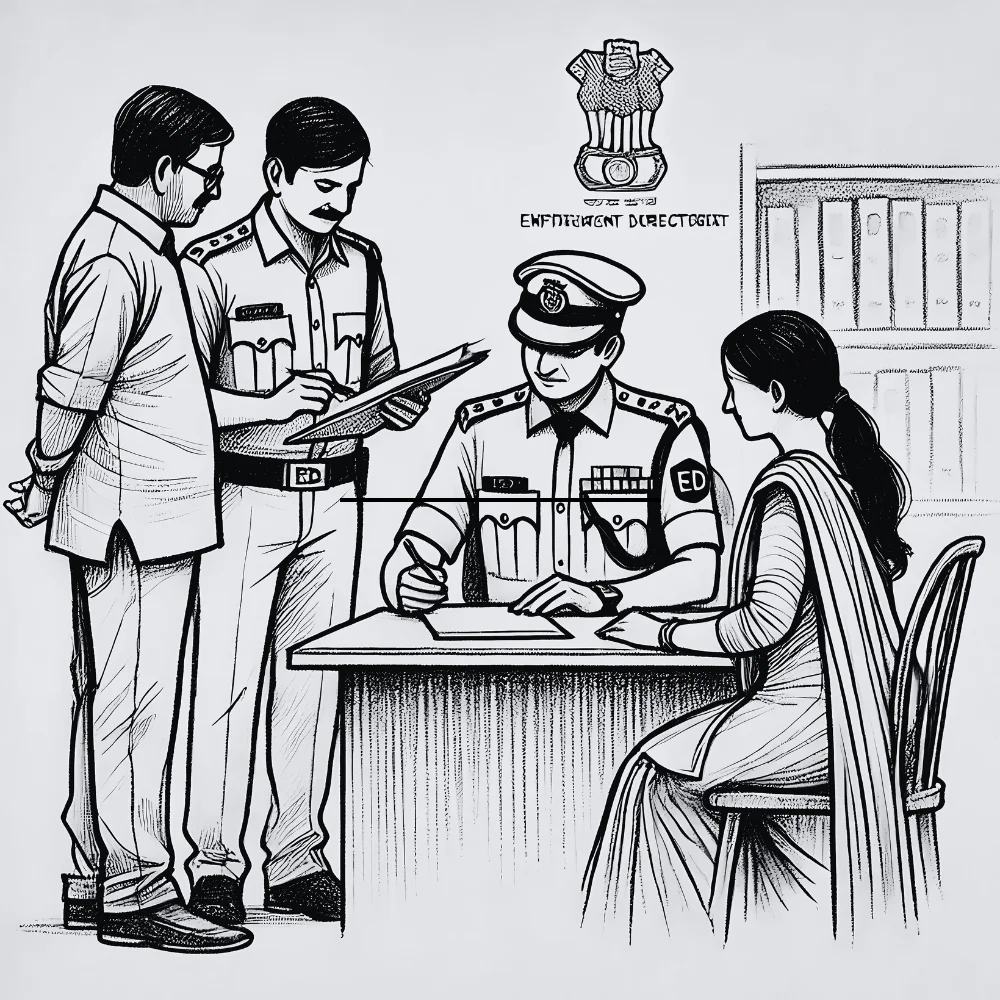Register FIR
The First Information Report (FIR) is the initial legal document prepared by police upon receiving information about a cognizable offense, formally starting the criminal investigation process. Under the Bharatiya Nagarik Suraksha Sanhita (BNSS), 2023, reforms ensure transparency and accountability in FIR registration, requiring officers to register an FIR immediately without a preliminary inquiry.
Failure to register an FIR is a punishable offense under BNSS, promoting prompt action. FIRs include critical details such as the incident’s date, time, location, offense description, and identities of involved parties. They serve as the basis for investigations, evidence gathering, and legal proceedings.
The BNSS has digitized the FIR process, allowing complainants to file online and track their case status, reducing delays. Victims receive free FIR copies, safeguarding their rights and ensuring they stay informed. Provisions prevent misuse through false or frivolous complaints, promoting fairness. These reforms aim to streamline investigations, boost public trust, and ensure swift justice.
Definition of FIR
The term “First Information Report” refers to the initial information provided to the police regarding a cognizable offense. It is documented under Section 173 of the BNSS and includes details such as the date, time, place of the offense, names and addresses of involved parties, and evidence available at the time of filing.
Process of Filing an FIR
- Reporting the Crime:
The informant provides details of the offense to the officer in charge of the police station, either orally or in writing.
- Documentation:
The officer records the information in the prescribed format and reads it back to the informant for verification.
- Signature:
The informant signs the FIR to confirm its accuracy. For electronically lodged FIRs, the signature must be provided within three days.
- Copy to Informant:
A copy of the FIR is provided to the informant free of charge.
- Investigation:
The police initiate an investigation based on the FIR, including evidence collection and witness examination.
Recent Amendments in BNS and BNSS
The BNSS introduces several amendments to improve the FIR registration process:
- Mandatory videography during the registration process to ensure transparency.
- Introduction of e-FIRs and zero FIRs, allowing complaints to be filed online irrespective of jurisdiction.
- Enhanced procedural safeguards to prevent misuse of FIRs.
- Timelines for investigation and submission of charge sheets to expedite justice.
Key Sections for FIR Registration
- Section 173:
Details the procedure for documenting and registering an FIR.
- Section 174:
Covers information related to non-cognizable offenses and the role of the Magistrate.
- Section 230:
Mandates that a copy of the FIR must be provided to the accused during trial proceedings.
Customer Rights in FIR Registration
- Right to File:
Any individual can file an FIR, regardless of whether they are the victim, witness, or someone with knowledge of the offense.
- Right to Free Copy:
The informant is entitled to receive a free copy of the FIR.
- Right to Online Filing:
E-FIRs can be filed online through designated platforms, ensuring accessibility.
- Right to Transparency:
The informant has the right to track the status of their FIR and receive updates on the investigation.
- Right to Appeal:
If the police refuse to register an FIR, the informant can approach higher authorities or the Magistrate.


Reviews
There are no reviews yet.